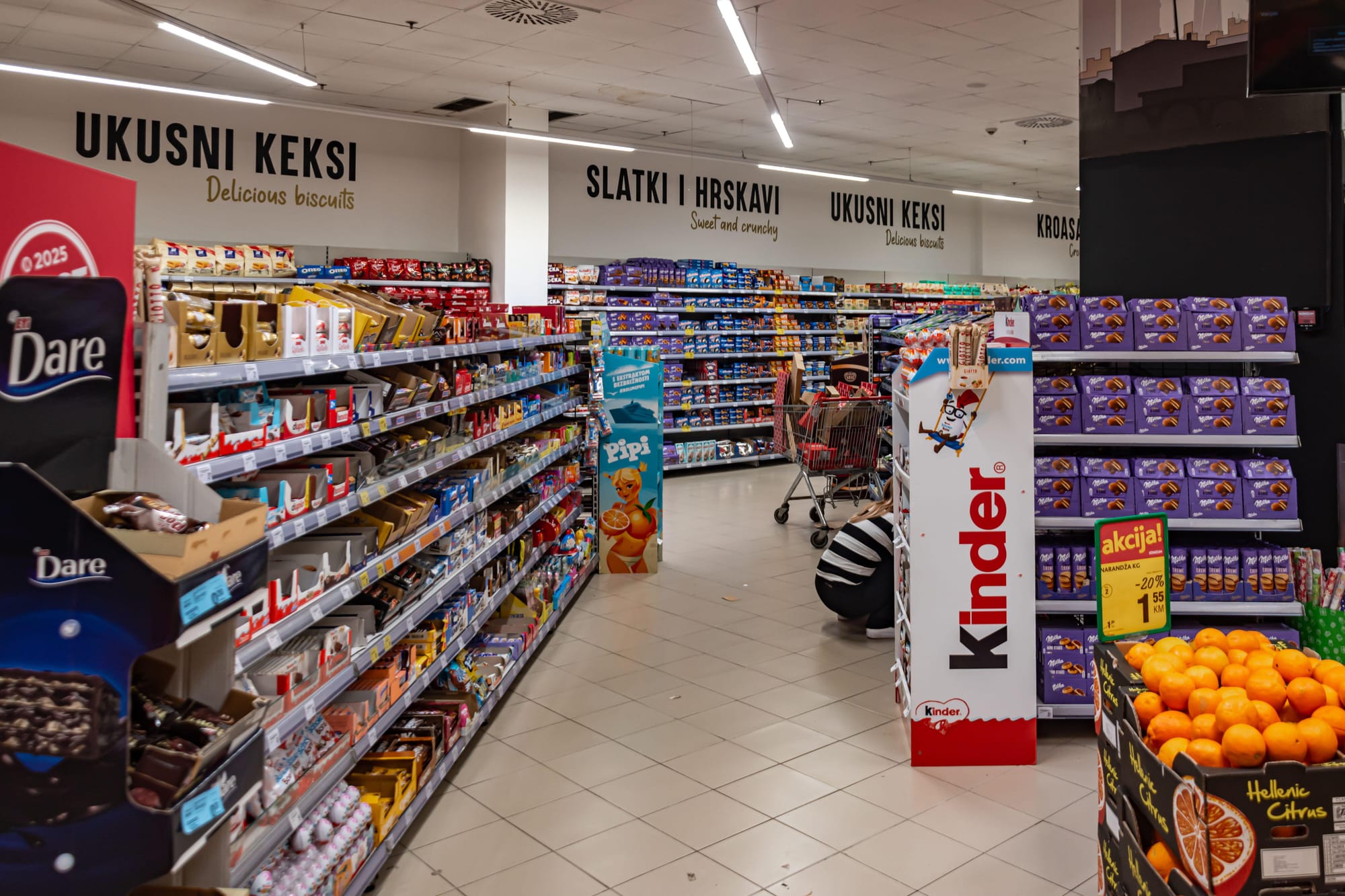The Balkans' price fightback
Nikola Teodosić in Budapest

In the few years following Croatia joining the Eurozone in 2023, cracks in the economy became too obvious for people to ignore. The economic aftershock of COVID-19 coupled with energy price inflation linked to Russia’s invasion of Ukraine led to a rapid increase in the cost of living across the countries of former Yugoslavia, which the currency transition in Croatia only worsened.
Now the people are hitting back. In late January, a Facebook page with 127k followers named Halo, Inspektore (Hello Inspector) organized a boycott of all major supermarket chains for two consecutive Fridays, before launching a week-long boycott of a single chain decided by a poll. The boycotts saw consumers spend around $60m less at German-owned Lidl and DM and Italian-owned Eurospin in the first two Fridays alone, instead reportedly opting for small, domestic markets and organic food stands. Other countries in the region followed suit, with consumer protests across Slovenia, Bosnia, Serbia, Montenegro, and North Macedonia.
In neighbouring Serbia, a lack of European Union membership and corrupt institutions means that consumer rights are largely unprotected, allowing price fixing and corporate greed to flourish. Despite an investigation in August 2024 into the top Serbian supermarkets – Delhaize Serbia, DIS, Univerexport, and Merkator – on suspicion of identical price fluctuations and photo evidence that the companies’ four CEOs met in a restaurant last August, no conclusive action has been taken to protect consumers from this oligopoly. Co-ordinated by an Instagram page with 58k followers, the consumers association Udruženje potrošača Efektiva (Efektiva), Serbian shoppers embarked on a similar three-week action at the end of January.
Croatia and Serbia, the two countries hit the hardest by rising food prices, have maintained the greatest public mobilization in the region since the initial actions in January, continuing boycotts weekly with widespread public support.
‘Boycott is a means of expressing resistance, disagreement,’ said a Hello Inspector page admin. ‘It has great power, it motivates action and demands an immediate change in the behavior of those against whom it is directed.’
In Croatia, Prime Minister Andrej Plenković has expressed support for the boycotts, implementing limits on the price of 70 essential products, and major chains such as Kaufland and Konzum have already lowered prices on over 250 products after drawing criticism from protestors. But in Serbia challenging corporate greed requires tackling corruption, and all will depend on the results of the ongoing anti-government protests.
Meanwhile the campaign has triggered protests even beyond the immediate region – Bulgaria saw similar actions in February, followed by Sweden in March. Efektiva president Dejan Gavrilović hopes that the widespread boycotts will help build a stronger public awareness for resisting future price spikes.
‘We want to permanently change the consciousness of consumers,’ he explains, ‘who should value their money more and always look at what they buy and how much it costs’.
📖 Revisit our 2023 issue which interrogates spiralling inequality (NI541: The cost of greed crisis)
👍 Follow Halo, Inspektore on Facebook and Udruženje potrošača Efektiva on Instagram to keep up with the boycotts in Croatia and Serbia
👓 Compare to the situation in Brazil, where lowering the cost of living will be key to Lula's re-election success, argues Leonardo Sakamoto
✊ Those in the UK can support the campaign for a real Living Wage
Read the latest issue of New Internationalist
Like what you've read? Support us with a tip
Looking for more? Listen to our podcast The World Unspun
Shop ethical goods at our very own Ethical Shop

